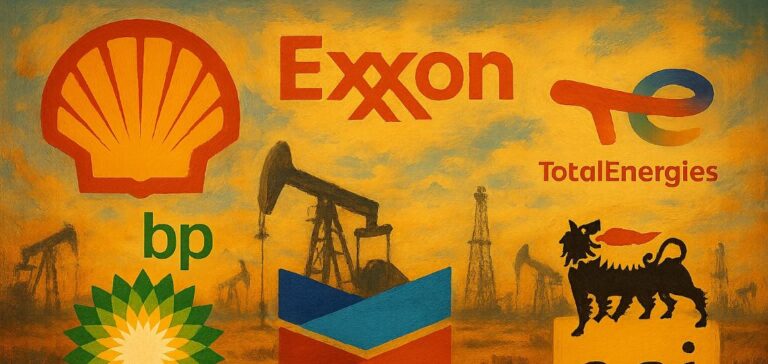International oil majors may be forced to scale back dividend distributions and share buybacks in 2025, according to the latest analysis from Rystad Energy published on May 22. The current oil price, stabilised around $60 per barrel, is challenging the sustainability of shareholder return strategies maintained by Shell, ExxonMobil, BP, Chevron, TotalEnergies, and Eni.
Record payouts become harder to sustain
In 2024, the six leading majors distributed a record $119bn to shareholders, representing a payout ratio of 56% of their Corporate Cash Flow from Operations (CCFO). This level significantly exceeds the historical 30–40% range observed from 2012 to 2022. Should this payout pace continue through 2025, returns could exceed 80% of generated cash flow—an unsustainable threshold unless major adjustments are made.
Some firms have set explicit distribution targets. BP, Eni, and TotalEnergies aim for 30–40% of CCFO, while Shell targets 40–50%. At current cash flow levels, this would imply a potential drop in aggregate payouts to between $70bn and $95bn in 2025, representing a 20–40% decrease compared to current levels.
Declining reserves to uphold payments
To maintain commitments, several companies have drawn from their cash reserves, which fell from nearly $160bn at the end of 2022 to slightly above $120bn in the first quarter of 2025. This gradual decline reflects efforts to sustain shareholder returns despite a drop in net cash inflows, amplified by volatile oil prices.
In this context, share buybacks—more flexible than dividends—are likely to be the first lever adjusted. “If oil prices remain at this level, cuts will become inevitable,” said Espen Erlingsen, Head of Upstream Research at Rystad Energy.
Strategic trade-offs ahead
Supermajors now face a complex trade-off: maintaining market confidence without weakening their financial stability. For several quarters, shareholders benefited from post-pandemic energy price surges, but recent signals point to a sustained downward shift. In a less favourable environment, companies will need to reassess the viability of their current capital return frameworks.
“The current cash flow level does not support sustaining 2024 distribution levels indefinitely,” Erlingsen said. For investors, these anticipated adjustments signal a break from expectations shaped by the high-price environment between 2021 and 2023.






















